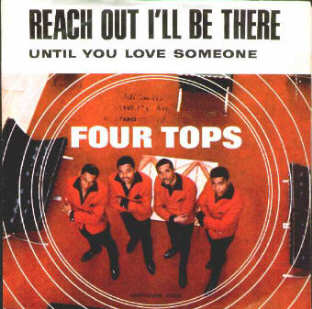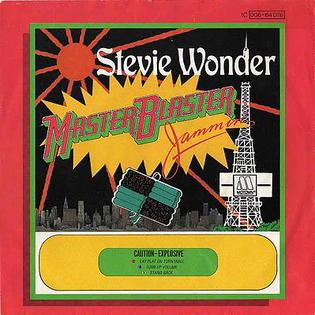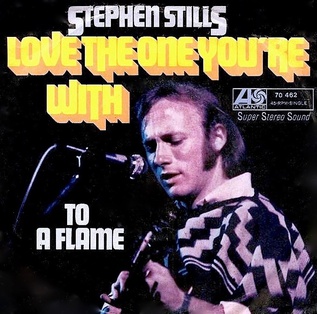
"Baby Love" is a song recorded by the American music group the Supremes in 1964 for their second studio album titled, Where Did Our Love Go. It was written and produced by Motown's main production team Holland–Dozier–Holland and was released on 17 September 1964.

"Love Child" is a 1968 song released by the Motown label for Diana Ross & the Supremes. The second single and title track from their album Love Child, it became the Supremes' 11th number-one single in the United States, where it sold 500,000 in its first week and 2 million copies by year's end.

"I Hear a Symphony" is a 1965 song recorded by The Supremes for the Motown label.

"Reach Out I'll Be There" is a song recorded by the Four Tops from their fourth studio album Reach Out (1967). Written and produced by Motown's main production team, Holland–Dozier–Holland, the song is one of the best known Motown tunes of the 1960s and is today considered the Four Tops' signature song.

"You're All I Need to Get By" is a song recorded by the American R&B/soul duo Marvin Gaye and Tammi Terrell and released on Motown Records' Tamla label in 1968. It was the basis for the 1995 single "I'll Be There for You/You're All I Need to Get By" from Method Man and Mary J. Blige.

"Ain't Nothing Like the Real Thing" is a 1968 single released by American R&B/soul duo Marvin Gaye and Tammi Terrell, on the Tamla label in 1968. The B-side of the single is "Little Ole Boy, Little Ole Girl" from the duo's United LP. The first release off the duo's second album: You're All I Need, the song - written and produced by regular Gaye/Terrell collaborators Ashford & Simpson - became a hit within weeks of release eventually peaking at number 8 on the Billboard Hot 100 and number 1 on the Hot Soul Singles chart, the first of the duo's s two number 1 R&B hits. In the UK "Ain't Nothing Like the Real Thing" reached number 34.

"Mr. Sandman" is a popular song written by Pat Ballard and published in 1954. It was first recorded in May of that year by Vaughn Monroe & His Orchestra and later that year by the Chordettes and the Four Aces. The song's lyrics convey a request to "Mr. Sandman" to "bring me a dream" – the traditional association of the folkloric figure. The pronoun used to refer to the desired dream is often changed depending on the sex of the singer or group performing the song, as the original sheet music publication, which includes male and female versions of the lyrics, intended.

"River Deep – Mountain High" is a song by Ike & Tina Turner released as the title track to their 1966 studio album on Philles Records. Produced by Phil Spector and written by Spector, Jeff Barry and Ellie Greenwich, it was considered by producer Phil Spector to be his best work. Rolling Stone ranked "River Deep – Mountain High" No. 33 on their list of the 500 Greatest Songs of All Time. NME ranked it No. 37 on their list of the 500 Greatest Songs of All Time. The Rock and Roll Hall of Fame added it to the list of the 500 Songs That Shaped Rock and Roll. The song was inducted into the Grammy Hall of Fame in 1999.

"Master Blaster (Jammin')" is a 1980 single by American singer-songwriter Stevie Wonder from his 1980 album Hotter than July. It was the lead single from the album.

"If I Were a Carpenter" is a folk song written by Tim Hardin in the 1960s, and re-recorded with commercial success by various artists including Bobby Darin, The Four Tops and Johnny Cash. Hardin's own recording of the piece appeared on his 1967 album Tim Hardin 2. It was one of two songs from that release performed by Hardin at Woodstock in 1969. The song, believed by some to be about male romantic insecurity, is rumoured to have been inspired by his love for actress Susan Morss, as well as the construction of Hardin's recording studio.

"These Dreams" is a song by American rock band Heart from their 1985 self-titled eighth studio album Heart. It was released on January 18, 1986, as the album's third single, becoming the band's first song to top the Billboard Hot 100.

"Love the One You're With" is a song by folk rock musician Stephen Stills. It was released as the lead single from his debut self-titled studio album in November 1970. The song, inspired by a remark Stills heard from musician Billy Preston, became his biggest hit single, peaking at No. 14 on the Billboard Hot 100 in early 1971. David Crosby and Graham Nash, Stills' fellow members of Crosby, Stills & Nash, provide background vocals on the song. The song was also covered by a number of artists, notably the Isley Brothers, The Meters, Bucks Fizz and Luther Vandross.

"Yesterday Once More", written by Richard Carpenter and John Bettis, is a hit song by the Carpenters from their 1973 album Now & Then. Thematically the song concerns reminiscing about songs of a generation gone by. It segues into a long medley, consisting of eight covers of 1960s tunes incorporated into a faux oldies radio program. The work takes up the entire B-side of the album.

"When She Was My Girl" is a 1981 single released by American vocal group the Four Tops. The song, their first release off Casablanca Records, helped to return the former signature Motown act to the American pop Top 40 charts, peaking at number 11 on the US Billboard Hot 100, number 10 on the Cashbox chart, and reaching number one on the R&B charts.

"When the Lovelight Starts Shining Through His Eyes" is a song written by Holland–Dozier–Holland and recorded in 1963 by Motown singing group The Supremes. It is notable as the Supremes' first Billboard Hot 100 Top 40 recording, following seven previous singles between January 1961 and September 1963 which failed to enter the Top 40. The single is also notable as the first Supremes single written and produced by Holland–Dozier–Holland, who had previously created hits for Martha and the Vandellas and Mary Wells.
"Run, Run, Run" is a 1964 song written by Holland–Dozier–Holland and released as a single by Motown singing group The Supremes. After a couple of years of unsuccessful singles, the Supremes had finally broken through with a Top 40 single (23) in December 1963 with "When the Lovelight Starts Shining Through His Eyes". On the heels of its release, Motown rush-released a second HDH single titled "Run, Run, Run". Inspired by the sounds by Phil Spector, it was an attempt to give the Supremes a poppier sound compared to their earlier heavy R&B recordings. Billboard described the song as a "strong follow up" to "When the Lovelight Starts Shining Through His Eyes," stating that it "has tough beat in a middle up groove that's great for dancing."

"Automatically Sunshine" is a song written by Smokey Robinson and released as a single by Motown singing group The Supremes as the second single from their popular album Floy Joy in 1972.
“You Gotta Have Love in Your Heart” is a duet single between Motown singing groups The Supremes and the Four Tops, released as a single from their The Return of the Magnificent 7 album in 1971. The single became a modest charter peaking at #55 on the U.S. Billboard Hot 100 chart and #41 on the U.S. Billboard R&B Singles Chart. The single fared better in the UK, where it reached #25 in the official top 50 single chart. Lead vocals were by the groups' respective lead singers Jean Terrell and Levi Stubbs.

"I'm In a Different World" is a song written and produced by Brian Holland, Lamont Dozier, and Edward Holland Jr. Billboard described the single as a "smooth swinger that moves and grooves throughout" which "should fast prove a sales topper."

"Some Things You Never Get Used To" is a song released in 1968 by Diana Ross & the Supremes on the Motown label. The single stalled for three weeks at number 30 on the U.S. Billboard pop chart in July 1968. It became the lowest-charting Supremes single since 1963 and became the catalyst for Berry Gordy to revamp songwriting for The Supremes since the loss of Motown's premier production team Holland–Dozier–Holland, whom Gordy had assigned as the group's sole producers after the success of "When the Lovelight Starts Shining Through His Eyes."


















